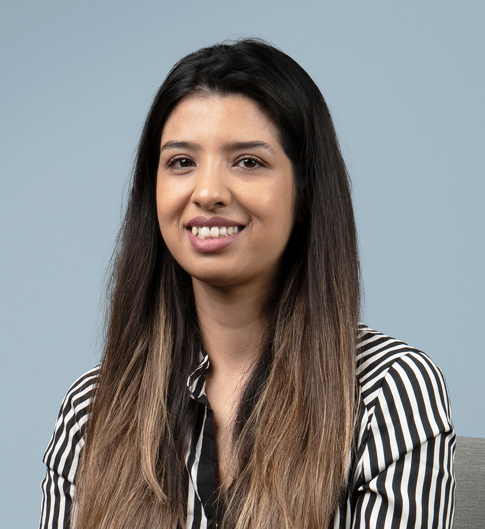The Human Safety Net
How MegaMarie gives families time.
Care worker Amina talks about the centre for families experiencing hardship.
MegaMarie is a space where families from different cultures can come together to play and craft. Care worker Amina talks about the people she’s met here and how the centre could have helped her when she first arrived in Switzerland as a refugee.
Amina, MegaMarie is a place where people from different cultural, social and linguistic backgrounds come together. How are they able to communicate with one another?
Yes, when thinking about all of the different people who come – Swiss-born children and parents, families from different countries who have often only just arrived, plus the children from the Zurich Federal Asylum Centre, who we also bring over here – you’d think that would be a real problem. In fact, it rarely is. People tend to communicate using gestures and facial expressions – whether that’s in the sandpit, painting or during our afternoon snack, and they really seem to be able to connect that way.
You came to Switzerland from Afghanistan as a refugee over ten years ago. How does your personal experience influence the work you do at MegaMarie?
After having my first child shortly after arriving in Switzerland, I was very lonely. I knew so little about being a mother and would have loved to do a German-language course, but I couldn’t afford child care. At the time, I really longed for a place where I could have met and connected with people in similar situations. However, I only came across something like this years later while looking for a job, and that was MegaMarie!
The Human Safety Net is dedicated to supporting initiatives like MegaMarie that are aimed at people who experience hardship. What are the families that come to you like?
It really varies – depending on where they are from and on their background. For certain people with a migrant background, I often take on the role of a confidant, because I speak Farsi, Turkish and Hindi. Hence, both adults and children will often tell me about tragic experiences. Even though I really understand where they’re coming from because of my own experiences, I still often don’t have any answers for them – for example, when they want to know when they will finally get a residence permit.
Can doing crafts, painting or playing at MegaMarie really make a difference in the face of such trauma?
Yes, definitely! To give you an example, let me tell you about a refugee family from Afghanistan that was housed at the BAZ Federal Asylum Centre. To start with, the whole family was just incredibly relieved to have finally reached safety. However, the longer they lived at the BAZ, the more unsettled and restless the children became, which was really noticeable whenever they visited us. BAZ is cramped and loud, and there’s not much privacy. Hence, the family’s visits to MegaMarie became a valuable respite from all of that. I also sometimes made them Afghan tea to make them feel more at home. So, I am convinced that, sometimes, little things can make a huge difference.
In addition to refugees, MegaMarie is also an important space for Swiss families who experience hardship.
That’s right. There are a lot of families from within the region who visit regularly. One of them, for example, is a dad with a young daughter who live outside the city and often join our morning art sessions to paint together. The dad recently shared just how therapeutic these carefree mornings with his daughter are for him. Many families who are socially disadvantaged don’t have the space or money for any creative activities at home.
You have now been working at MegaMarie for nearly two years. How has this work impacted your life?
When I get up in the morning, I don’t think of MegaMarie as ‘work’ – because the centre makes me and others so happy. Hence, I just automatically have a smile on my face when I greet parents and children. And at other times, it also makes me think of where I was at when I first arrived in Switzerland, and where I am now.

Amina
Care worker at the MegaMarie community centre
The Marie Meierhofer Institute for Children is a centre of excellence for early childhood development. For over 60 years, the institute has been committed to ensuring that children get what they need to grow up healthy, both within the family home and beyond.

 Contact
Contact
 Find an agency
Find an agency









 Close
Close




